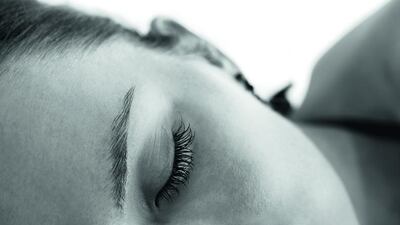Ask anyone how they’re doing and chances are their response will be a resounding “busy”. We’ve become a culture so adapted to the idea of always being on the go that it’s become a badge of honour, rather than a concern. But as this mentality becomes more of the norm, it can also cause us to lose sight of our health and well-being, especially when it comes to sleep. A 2014 survey for Intercoil by YouGov found that UAE residents sleep an average of just 6.5 hours a night during the week and 7.8 hours during weekends. What’s worse is that 25 per cent of Emiratis and Arab expatriates claim they get less than four hours a night, despite many reports suggesting that we should be trying to get a full eight hours per night.
Most people know the effect lack of sleep can have on our temperaments: crankiness, short temper and even absent-mindedness are all enough to make anyone rethink losing out on precious shut-eye. But did you know that lack of sleep can have long-term implications? Being tired can cause us to overindulge in high-energy foods, which can cause weight gain, while research released in March suggests that sleep deprivation can lead to the damage of brain cells.
Dr Hadine Joffe, an associate professor of psychiatry at Harvard Medical School, suggests that people with sleep problems should consider lifestyle changes, rather than reaching for over-the-counter sleep aids. “Two good ones to start with include avoiding caffeine and sticking to a regular sleep schedule,” Joffe suggests. If these steps don’t help, Joffe suggests seeking the help of a physician as this might be a sign of underlying medical conditions, such as thyroid problems, anaemia, sleep apnoea or depression.
While medical issues can often be the root cause of sleep deprivation, recent technology may be also adding to our trouble in catching zeds. With smartphones, tablets and laptops becoming part of our everyday lives, it has become increasingly difficult to shut them off, especially in the bedroom. In 2011, the Journal of Applied Physiology published research that looked into the effect of LED-backlit computer screens (such as tablets) on the body's production of melatonin (the hormone that regulates sleep patterns), alertness and cognitive performance. It found that the amount of light emitted by LEDs was so significant that it caused a reduction in melatonin secretion and sleepiness levels. Essentially, these items are keeping your brain awake, even if you don't realise it. Banishing your devices to another room will help with this. We promise they'll still be there for you in the morning.
Aside from ruling out medical conditions and removing technology from your bedroom, exercise is also a great way to help improve sleep quality, especially if done during the early hours of the day. “It is better to exercise in the morning because the natural light helps the body wake up,” explains Dr Khaldoun Mozahem, a neurological consultant and sleep specialist at the American Center for Psychiatry and Neurology in Abu Dhabi. “If you exercise late at night, it can be stimulating and stop you from being sleepy.”

